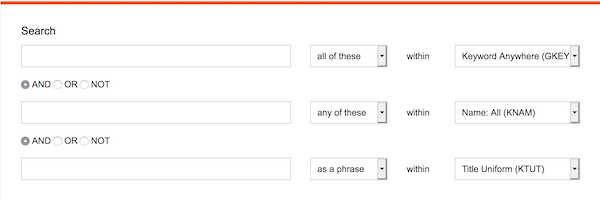
I use my library school education in odd ways. I barely knew library school was a thing before I went to library school. So I’m not entirely surprised when other people don’t know that many, if not most, librarians have some sort of professional-level education. Library education is a curious mix of what I think of as trade-school work–learning to do repetitive tasks efficiently and within the scope of an existing protocol–and professional work–thinking about big picture ideas like intellectual freedom and how to determine what a book is really “about.” In the work I do nowadays, I am more likely to use my decades of experience than I am to use things I specifically learned in school, but there are a few exceptions. Doing research to write Wikipedia articles uses a lot of my library school learning.
Doesn’t need to be Wikipedia, certainly, but I’m often writing articles there about people who aren’t super-famous, or were well-known maybe a long time ago. They’re often women, married women. Which means, especially for historical women, they’d have a married name and a maiden name. A decent chunk of the women I write about have been married more than once. So they might have multiple versions of their names. And, of course, historically the woman might just be known as Mrs. MANSNAME, even for her professional work.
Google’s gotten us all pretty comfortable with just tossing a hash of basically-accurate letters into a search box and having it come back with more or less what you’re looking for. Using other, generally worse, search engines can often require doing things like “bound phrase” searching (see what I did there?) where the only way you’re going to come back with anything remotely accurate is to say that you’re looking for a bunch of specific words in a specific order. In library school, I took a class that taught you how to search in databases. This was back when you would pay BY THE QUERY to look things up, and it wasn’t cheap. Being able to write good queries was a money-saving skill, not just a time-saving one. So we’d do fun exercises where we were given a set of records to try to find, and then we’d write and run queries to see how we’d do in terms of recall (did we get all the stuff that matched) and relevance (did we get a bunch of extra junk too). One of the assignments involved looking for information on an indigenous language that was transliterated as Athabaskan or Athapaskan or Athapascan or Athabascan. So you’d need to make sure your query used Atha?as?an, and you’d need to know how to do that within the query language of the given database.
So nowadays, when I am searching Loc.gov, or Newspapers.com, or within various random databases or websites, I need to figure out how they deal with queries, peeking at the advanced search if there even is one, to determine how many different ways I need to search for someone’s name. Within a library catalog, searching for an author, there would be authority control so you’d mostly need to just know what version of the person’s name the catalog uses and then you’d know that all their books would be under that one name. Not so with other databases.
As an example, I wrote an article about Mary C. Alexander, an early female pilot who lived in the DC area. She was married twice. Here are many of the different ways her name might be found:
M. White
Mary White
Mary C. White
Mary Charlotte White
M. Alexander
Mrs. Alexander
Miss. Alexander
Mary Alexander
Mary C. Alexander
Mary Charlotte Alexander
Mrs. John Ira Alexander
M. Held
Mary Held
Mary C. Held
Mary C. A. Held
Mary Alexander Held
Mary C. Alexander Held
Mrs. Mary Held
Mrs. Mary Alexander Held
Mrs. Emil Charles Held
Mrs. Mary Charlotte Alexander Held
Looking for information about her, distributed among many different places with their own quirky search mechanisms, most of which aren’t surfaced in Google, has been a fun chance to flex the query-building muscles that I don’t get to use that often nowadays in my regular library work.
I stumbled upon your blog a few months ago, and have been reading sporadically. It takes me back!
Both my parents were librarians. My dad was a college head librarian who passed nearly 25 years ago. My mom was a public librarian who retired over 20 years ago, and is still alive at 99.
Dinner table conversations as a childhood were on topics that seemed natural at the time, but bizarre to most people. Think, relative merits of Dewey Decimal vs. LC.
Love the blog! Keep rarin!